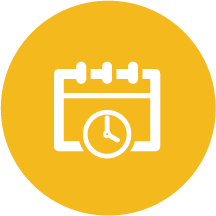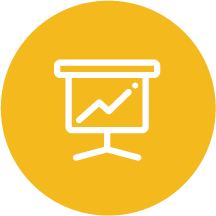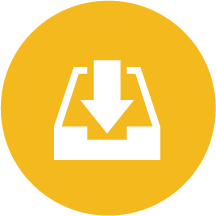HK Medicine Applicant
HK Medicine Applicant
Quick Access
Work experienceInterview workshop
Changes in Admissions Tests (2025 Entry)
The BMAT test will be discontinued starting in 2024 (for applicants applying to start University in 2025).
How to increase your chance of admission into HKU and CUHK Medicine (Non-JUPAS application)
If you are applying to HKU or CUHK medical school as a non-JUPAS applicant, there will be a range of things to consider when preparing your application - from attending a university open day, doing work experiences, writing your personal statement, submitting your application to attending an interview, etc. Here are some tips to help you to succeed along the way.
Make sure you chose the right subject combination you need to apply for medicine in Hong Kong
All medicine schools will set a minimum academic requirement for their applicants. UK medical schools typically require their applicants to study a minimum of three A-level subjects, which typically include maths and sciences. It is important to bear in mind that the requirement for studying medicine in Hong Kong is generally higher.
For example, the minimum requirement for CUHK and HKU medicine is four A level subjects. Unfortunately, both won't accept EPQ as the 4th subject. Furthermore, Chinese and Further Maths are not accepted as the 4th subject by CUHK. Hence if you want to apply for CUHK or HKU medicine, make sure you study for 4 A level subjects, excluding Chinese, Further Maths and EPQ.
Important: Before applying, you should check the CUHK and HKU medical school websites for the most up to date information on the minimum requirement for your academic qualifications (GCE A level, IB diploma, SAT/AP/ACT).
Attending university open day / summer medicine taster programme
We strongly recommend those who are interested in Medicine or healthcare to attend a summer taster programme organised by CUHK or HKU medical schools.
Such programmes aim at enhancing students’ understanding of multiple healthcare professions, including Medicine, Dentistry and Health Sciences. Through lectures, interactive workshops, laboratory sessions and group discussions, students will have a chance to explore global health issues from the perspectives of different specialties. With the hands-on approach and the variety of experiential activities, students will gain a better insight into their career prospect. It will also give them an opportunity to explore the course structure, university life and culture through speaking with current medical students, tutors and professors from the respective medical schools. Last but not least, they could contribute to your personal statement content as well as your interview answer to the classic question: “why do you want to study with us”?
Getting healthcare related work experience or volunteering in a caring role
Whether through volunteering or paid employment, having experience in a caring role or in a healthcare environment is extremely valuable for your application to medicine.
Getting hands-on experience will also give you a great insight into the day-to-day life of being a doctor and show your commitment to becoming a medic. Furthermore, these experiences would provide excellent content for your personal statement and talking points during interviews. If you are a student planning to apply to medicine, you should plan ahead and start arranging or applying for work experience.
Writing your personal statement
The most important part of writing your personal statement is not to rush it. Find out about the deadlines (internal school deadline as well as the official external deadline) and give yourself plenty of time to draft your personal statement - brainstorming and drafting. It is not unusual for most students to go through 5-6 drafts before finalising their personal statement.
Medical schools want to know not just about your grades, but about you as a person. Talk about all the things you have achieved in your life: personal interests, hobbies, sports achievements, academic prizes, projects you have worked on, social groups you've been a part of.
For CUHK, you are required write a 250-word personal statement. HKU, on the other hand, requires a 1 to 2-page personal statement upon application. Most students will start with their HKU Medicine personal statement, which sometimes is an extension or adaptation of their UK medical school personal statement if they are also applying to medicine in the UK.
Interview
After submitting your application, you may be shortlisted for an interview on the basis of your academic record and non-academic (extracurricular) achievements.
Generally, HKU interviews begin over the Christmas period and last all the way to August. They have updated their interview format in December 2022, please refer to the below.
For CUHK, applicants with exceptional UCAT/BMAT scores* may be invited to an early interview (in January or April), while other shortlisted applicants will be interviewed in July or after A-level results day (mid-August). *UCAT/BMAT is not required for CUHK medicine application, but is highly encouraged and could be an advantage in securing an early interview. CUHK Interviews are conducted in a panel style in English, with a panel of two interviewers.
During the COVID-19 pandemic, some interviews may be conducted online in place of in-person interviews.
Work experience for applying to Medicine
Why is work experience needed?
All medical schools require applicants to have an understanding of what a career in medicine involves. It is therefore essential that you gain medicine/healthcare related and people-focused experiences of providing care or service before you apply. You will be expected to discuss these experiences in your personal statement and at your interviews.
Did you know...
- Most medical schools do not set a minimum number of hours of work experience, but they do want you to reflect on what you have learnt.
- The most important things about work experience are what you have learnt about yourself, what you have demonstrated about your commitment to caring for other people, and what understanding you have gained of how effective care is delivered to patients.
What do medical schools want to see?
They want to see how your work experience has given you
- Experience of giving care, support or help to other people so you understand the realities of working in a caring profession
- Some of the attributes and qualities essential to being a doctor, such as teamwork, good communication skills, and the ability to interact with a wide variety of people
- A realistic understanding of medicine and in particular, the physical, organisational and emotional demands of a medical career
What type of work experiences do I need?
Ideally, you should begin your work experience 1-2 years prior to applying to medical schools. There are two basic types of experience that you can have:
- Working with other people in a caring or service role, and in particular, with people who are ill, disabled or disadvantaged. (Strongly recommended)
- Direct observation of healthcare, i.e. work shadowing.
While shadowing a doctor or healthcare professionals can be useful, medical schools recognise that this is not attainable for everyone (especially during the COVID-19 pandemic). Your work experience can be working with other people in a caring or service role, and in particular, with people who are ill, disabled or disadvantaged. You can gain care experience in care homes for the elderly, hospitals, hospices, nurseries, special schools, community-based settings, or by volunteering to provide first aid or other support services.
Paid employment or voluntary work in areas outside of healthcare can also help you demonstrate the attributes and soft skills required for medicine, such as working with people, teamwork and communication skills.
Making the most out of your work experiences...
Reflect on your experiences and make sure you can express what you have learnt about yourself and medicine. Complete a diary during your work experience where you can reflect on your experiences and observations.
Finding the relevant medicine related experiences / shadowing may be challenging sometimes, in such cases, students are expected to be resourceful and use online media or other means to explore medicine.
Other practical ways to gain experience and understand medicine as a career:
- Keep a reflective diary on what is happening in the news and online on healthcare related issues: Many healthcare professionals are posting online about their experience of working during the pandemic. Listen to what they have to say and reflect on this.
- Make use of online resources: There are some free online courses that have been recognised by medical schools as a suitable element of relevant experience to help prepare an application to medicine.
- Volunteer in your spare time: All forms of voluntary work can provide helpful work experience. While volunteering in a healthcare setting or working in a caring or service role (in particular with people who are ill, disabled or disadvantaged) is preferable, such roles are limited during the pandemic. At the same time, other volunteering schemes may still be in operation and worth exploring. Voluntary commitments to your local community and online community support groups may also provide valuable experience of taking on responsibility, developing your people skills and communication skills effectively. It is likely that these sorts of volunteering opportunities will start to run again before healthcare related opportunities are available.
HKU / CUHK Medicine interview Tips
How to prepare for your Hong Kong medicine interviews?
- Know your Personal Statement inside out - this should be obvious for all Medicine applicants. Based on past feedback, CUHK places quite a strong focus on the personal statement, as interviewers will ask you about your extracurricular activities and what you have learnt from them. CUHK may also request a two-page CV from interviewees, so make sure that you have something to say about the work experience/extracurricular activities that you have listed.
- Understand the basic medical ethics principles - Similar to other medical school interviews, for Hong Kong Medicine interviews you should understand the four pillars of Ethics (autonomy, beneficence, non-maleficence and justice) and know how to apply them to different situations. An additional piece of advice would be to link the ethics back to the Hong Kong context.
- Read up on Hong Kong news and general affairs - Similar to reading up about the NHS when applying to UK medical schools, it’s a good idea to read up on Hong Kong medical news and the basics of the Hong Kong medical system. You should appreciate some key differences between the medical system in other countries (e.g. UK NHS if you are studying abroad) and Hong Kong, and be aware of some important policies or schemes that the Department of Health has proposed or enforced.
- Brush up on your Cantonese speaking skills (see above)
Medicine Interview Workshop
Your interview performance will directly impact your chance of securing an offer. Most students may find the idea of an interview daunting. If you are nervous, interview coaching and mock interviews go a long way to prepare you for the type of questions you will be asked; and ultimately increase your chance of securing an offer.
We provide both Medicine Interview Workshop (Group Class) and 1 to 1 Mock training. For 1 to 1 mock training, each mock session will last 45 minutes* which includes feedback. At the end of the mock interview, the interviewer will discuss the student's performance, highlighting areas for improvement. Please contact us here for enquiry.
*Option to extend to an hour for additional interview coaching
<!--Medicine/ Dentistry / Other Healthcare related courses
HKU Medicine uses both individual and group interview formats, while CUHK Medicine uses individual panel interviews. Regardless of the format, the interviews are designed to explore the student’s personal qualities and attributes which are vital to becoming a good doctor in the future.
You can expect to be asked about your interest in Medicine (or your chosen field), your knowledge of healthcare as well as questions on Ethics, Current issues, Teamwork and Communication.
2024 Medicine Interview Workshop
| Target Audience | Lesson date and time (HKT) | No. of Students | Host |
|---|---|---|---|
| HKU and CUHK Medical applicants (non-JUPAS) (In-person at Sheung Wan Centre) |
26 Oct, 2024 (Sat) 17:00-18:30 |
2-8 Students | Serena |
| HK Medical School (In-person at Sheung Wan Centre) |
2 Nov, 2024 (Sat) 14:00-16:00 3 Nov, 2024(Sun) 10:00-13:00 |
4-8 Students | Dr. Cecilia |
| UK and HK Medical School (In-person at Sheung Wan Centre) |
2 Nov, 2024 (Sat) 14:00-16:00 3 Nov, 2024(Sun) 10:00-13:00, 14:00-16:00 |
4-8 Students | Dr. Cecilia |
| HKU and CUHK Medical applicants (non-JUPAS) (In-person at Sheung Wan Centre) |
24 Nov, 2024 (Sun) 14:00-15:30 |
2-8 Students | Serena |
OUR SUCCESS STORIES
Here at CANA Elite, we truly believe that every student is unique and has the potential to reach their goals with the right guidance. Academic excellence is derived from both passionate teachers and eager students. That is why we provide a unique learning experience tailored to each individual student. Named after the location of the first miracle in the Bible, we hope CANA elite can be the place of miracles for all our students, allowing them to achieve their dreams.







